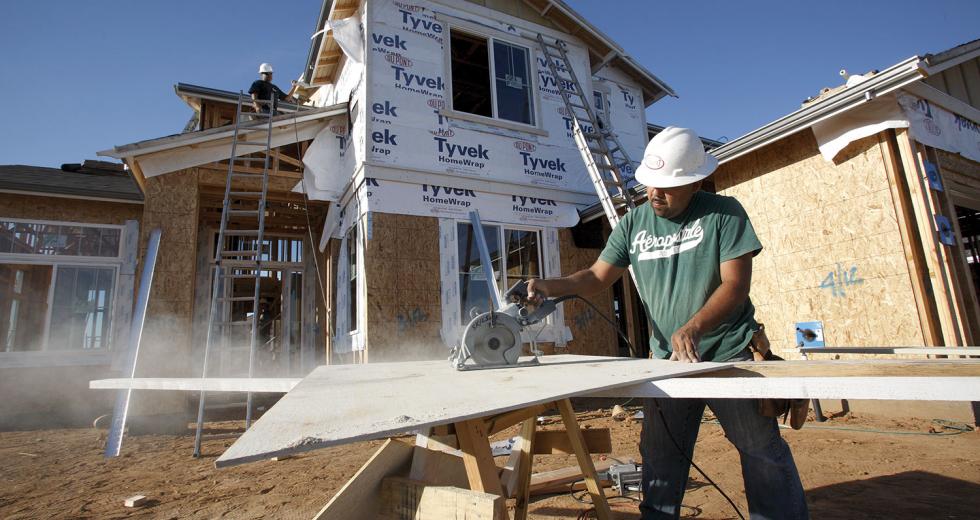Statistics and headlines indicate doom and gloom across the country, but local developers are still building houses. In the Capital Region, Roseville leads the area in new-home construction.
West Roseville, home to WestPark and Fiddyment Farms developments, accounted for more than 30 percent of the homes sold in the six-county region last year, according to the Gregory Group, a Folsom-based real estate consulting and research firm. Throw in Rocklin and Lincoln, and Placer County accounts for nearly 50 percent of new-home sales.
“Roseville has a large job base, their cost base is improving and they’ve got fantastic schools,” says Dennis Rogers, senior vice president of government and public affairs at the North State Building Industry Association.
There are glimmers of hope elsewhere thanks in part to drops in land prices, which in some cases have been brought about by foreclosure. The one bright spot for Sacramento County may be Elk Grove, which appears to be making some headway again with the Madeira development.
Meanwhile in Woodland, an agricultural hub of Yolo County, developers are poised to start building again.
As 2011 nears, market insiders say its unlikely there is going to be a construction boon in any other market.
“A house is where a job goes to sleep,” Rogers says. “Without job creation, it’s very hard to build new housing.”
At the peak of real estate sales there was growth in outlying markets, such as Yuba and Sutter counties, where the job market was never big but it was cheaper to buy homes.
But now that construction costs have plummeted, construction has shifted back toward the job centers, says John Bayless of Signature Homes. The resulting drop in price points helped to even the playing field, especially in Placer County.
“People who have not been able to afford to live in Roseville are able to now,” Rogers says. “The saying, drive until you can afford it, doesn’t come into play and won’t come into play for a long time.”
Not only does Roseville boast a huge job base with some 76,000 jobs, third behind downtown Sacramento and Rancho Cordova, it was also recently named one of the state’s 10 least-expensive cities to do business, according to a survey by Kosmont-Rose Institute.
Jobs, great schools and packed with amenities, what’s not to like?
“It’s an overused term, but quality of life is truly important for a lot of businesses,” says Karen Garner, Roseville’s economic development analyst. “Executives want to live somewhere that is good for their children.”
Like other cities, Roseville has also endured a huge decline in the number of housing permits issued annually. Over a 10-year period it averaged 1,080 homes annually, according to Chris Robles, community development manager. Last year it issued 610 permits.
But considering how dismal the picture is in other cities, municipalities can only wish for Roseville’s lower figures. In 2009, Elk Grove issued only 201 building permits.
“We’ve got 10 to 12 homebuilders actively building in Roseville, “ Robles says.
Both Fiddyment Farms and WestPark developments are busy with construction and sales.
Fiddyment Farms was once a family farm where livestock grazed and
pistachio orchards stood. Now it is a master-planned development
with several developers, including KB Homes, Meritage and K
Hovnanian Homes.
It was recently named one of the state’s 10 least-expensive cities to do business.
WestPark is being developed by Lennar Homes and Pulte Homes,
which in its merger with Centex Homes took over the Centex
projects. It’s a site that has several more years of new-home
inventory. A family can buy a starter home for $250,000 in
Roseville.
Despite the availability of repossessed homes, some families prefer going the new-home route instead of trying their luck in the bidding process, says Donna O’Connell, director of marketing for Pulte.
“A new home offers stability,” O’Connell says. “The price is the price.”
Like Roseville, Elk Grove enjoys a reputation as having a strong school system. But unlike Roseville, Elk Grove’s new housing market has taken a hit.
Two years ago Elk Grove city officials began employing measures to jumpstart housing. Impact fees were deferred to the time of closing, and road and capital facilities were cut by 30 percent.
Heather Ross, economic development director for the city of Elk Grove, says the city is doing better than it did last year. At the end of August it had already issued 238 permits.
It also has helped that lots in the 1,900-acre Madeira development, formerly known as Laguna Ridge, dropped in price as a result of foreclosures.
Axios Homes of Sacramento picked up 55 lots for less than $40,000 a pop two years ago from Bank of America, says Axios’s Marketing Director, Michael Marks. The company has built and sold 14 homes so far this year.
“It didn’t make sense to build up until last year,” he says. “You couldn’t make an affordable house. We aren’t making a huge profit. We’re making enough money to make it worth our while and for the customers.”
Woodland, too, has plenty of foreclosed land, says Paul Siegel, deputy director of community development. Some 2,000 lots of the Spring Lake development are awaiting new homes.
The city issued between 30 and 40 housing permits this year, Siegel says. But the city’s fortunes appear to be looking up with two projects on the drawing board and several more developers expressing interest, he says.
Pulte is in line to build 79 homes at a new development called Starlyn Park near Woodland High School. Standard Pacific is preparing to build 160 homes in Spring Lake where the company was able to purchase foreclosed property at a discount price, Siegel says. Standard Pacific did not return calls for this story.
“It’s hard to build from scratch in this economy,” Siegel says.
Woodland benefits from restrictions faced by neighboring cities. Davis, for one, has long been an attractive college town essentially closed to development. What’s more, Davis did not suffer the foreclosure scourge as so many other Central Valley towns, so there is no surplus of homes.
Woodland also benefits from the construction restrictions Natomas faces because of its floodplain issues.
In addition to gaining a reputation as a friendly small town with a historic downtown, Woodland also offers a fairly quick getaway. Easy access to Highway 113 makes commuting to Sacramento, Davis or Vacaville easy work.
Following the examples of Roseville and Elk Grove, the city of Stockton just announced it is deferring developer fees. Marks says it’s a wise move, especially considering Stockton’s collection of undeveloped property sitting in foreclosure.
Greg Paquin, president of the Gregory Group, is doubtful incentives will do much to ameliorate Stockton’s housing fortunes, especially since there are a limited number of buyers. Paquin says it will only be when the buyer pool expands that the incentives will reap benefits for that city.
For more information on Ken James:
www.kjamesimages.com
Recommended For You

The Plight of CADA
Where goes the neighborhood?
Three years ago, Gov. Jerry Brown pulled the plug on local government redevelopment agencies and the estimated $5 billion a year they spend rebuilding inner cities to combat urban blight.

Grow Home
Big business settles down in south Placer
South Placer County has long been considered a good place to settle down and raise a family. Likewise, some companies are finding it to be a great place to settle down and raise a business.



